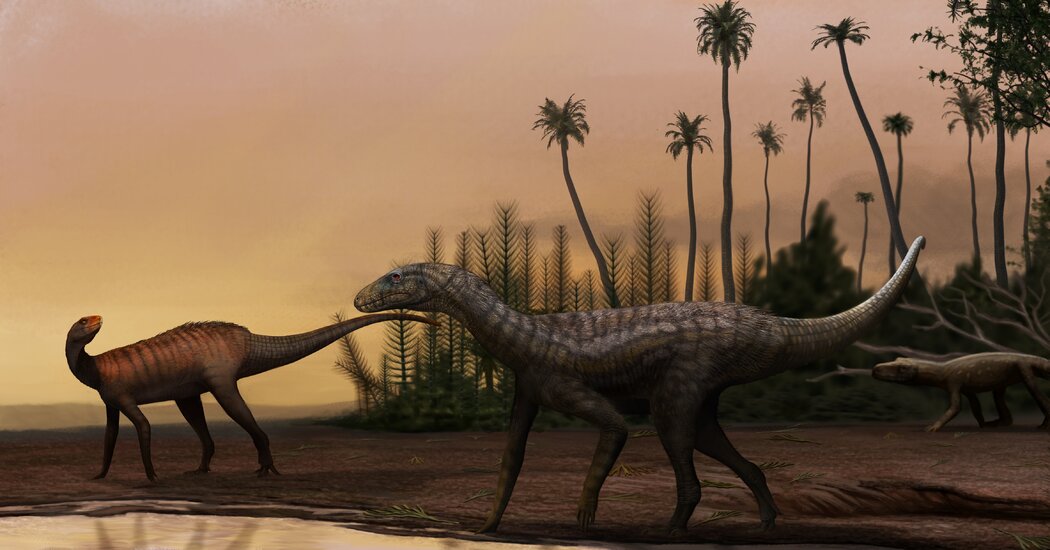The discovery may push back the emergence of the reptiles that once ruled the Earth, and clarify how dinosaurs like the Triceratops and Stegosaurus emerged.
A dog-size reptile slipped through fern-choked forests 237 million years ago in what is today Paraíso do Sul, Brazil. The animal had the body of a greyhound, a long neck and tail, and a small, nipping beak. Running on four, upright legs, the reptile looked remarkably like an early dinosaur. Yet it lived almost 10 million years before any other known dinosaurs.
A study published last month in the journal Gondwana Research argues that this animal, Gondwanax paraisensis, in fact is one of the oldest dinosaurs ever found. Further support for this finding could solve the mystery of how and where the largest family of plant-eating dinosaurs emerged.
Since the 1800s, most paleontologists have agreed that all dinosaurs share a common ancestor that emerged in the Triassic Period about 200-250 million years ago, said Steve Brusatte, who is a paleontologist at the University of Edinburgh and was not involved in the study. They were reptiles called archosaurs, and some had shared anatomical traits.
Those ancestral dinosaurs split into three major subgroups: predatory theropods, long-necked sauropods and the ornithischians. The last group included diverse and well-known beaked herbivores like Triceratops, Stegosaurus and Iguanodon.
Yet while some early theropods and sauropods are known from 230-million-year-old Triassic rocks, there are “just a few scrappy, fragmentary road kill fossils” that could possibly — “if you squint”— be Triassic ornithischians, Dr. Brusatte said. That absence of clear evidence caused some researchers to wonder whether the ancestral ornithischians they were looking for were hiding in plain sight.
